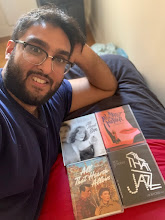Deepika Padukone debuted to smashing success with Om Shanti Om. I'm not a fan of the film but her work was noticed and it was clear she had star potential. After that, however, Padukone struggled to make a place for herself with small "girlfriend" roles or poorly reviewed performances. She had a hit with Love Aaj Kal and did decent work in Lafangey Parindey, but she wasn't really taken seriously.
 |
| Cocktail |
I think what Deepika Padukone has contributed to the Indian film industry is marrying the old school Bollywood heroine with progressive and current ideals. Through her roles in Goliyon Ki Raasleela Ram-Leela, Chennai Express, Love Aaj Kal and Piku among others, she found a way to hold onto what made the actresses from the 90s and prior iconic and powerful, but adding in her own modern twist.
I won't say that Padukone is the new Madhuri Dixit or the new Sridevi or Kajol, Juhi Chawla, Rani Mukherji, Karisma Kapoor because a) they're all still working in some capacity and b) I don't want to participate in ageism. However, their influences--specifically Dixit's and Sridevi's--are clear when looking at Padukone. Both Dixit and Sridevi challenged the patriarchy of Bollywood, rarely taking on "supportive girlfriend" roles or if they did, overshadowing the nominal hero. They knew how to land a punchline or a physical comedy gag as well as deliver a dramatic monologue. Their dancing talents made the musical numbers feel exciting, memorable and organic. This is all true for Deepika Padukone, who is the modern, consistently working actress who feels most comfortable and natural in the traditional Bollywood film (see: Chennai Express, which is almost apologetic for having SRK be the main character).
 |
| Chennai Express |
I'm not saying that Padukone is the only actress who exhibits this kind of control over herself. Anushka Sharma, Priyanka Chopra, Kangana Ranaut and Kareena Kapoor all have moved the Bollywood heroine into the 2st century in their own way. Preity Zinta also is a trailblazer with films like Kya Kehna, Salaam Namaste, Kal Ho Naa Ho and Kabhi Alvida Naa Kehna. However, the main difference is that in my opinion, these actresses don't have the same goodwill that Padukone does. There is something so traditional about Padukone, which makes her more progressive attitudes easier to swallow for conservative Indian audiences.
 |
| Ram-Leela |
In Piku, Padukone plays the title character burdened by her cantankerous father Bhaskar, played by Amitabh Bachchan. Bhaskar, when talking to a guy that Piku has been set up with by her aunt, says that she is financially and sexually independent. That was a major moment for me, to see not only Padukone play another progressive character but to have her father (Amitabh Bachchan, no less!) aware of and proud of his adult daughter being an actual adult. That was something I had never seen before. 20 years ago, Kajol was lectured for having an unconsummated crush on a man in DDLJ. Now look where the Bollywood heroine is going. This is the influence and power of Deepika Padukone.
That Deepika Padukone's films make money at the box office is really important. It means that audiences are accepting the characters she's playing. And there's another thing: when some actresses appear in supportive roles in successful masala movies, I often wonder if the actress brought in some audiences or if she's just a random heroine. With Padukone, I don't have to wonder. She's had enough success on her own that she's not some random heroine, she's irreplaceable.
Deepika Padukone has had a major impact in Bollywood through her films and the progressive, meaty characters she's played. Not content to just be the girlfriend, many of her roles dominate the film. And I know she believes in the work she is doing for the Indian film industry. She is moving Hindi cinema forward through her performances and the power she wields in the industry. And her social activism is promoting women's liberation, a message she subtly preaches through her films. Just check out this video for Vogue Empower, talking about women making choices for themselves.
Like what you read? Please like my blog at Facebook.com/MathurMarquee. Also, follow me on Twitter @HippogriffRider. For more of my work, check out Horror Film Central. Agree? Disagree? Sound off in the comments below!



1 comment:
Very nice blog, I really appreciate it
Post a Comment